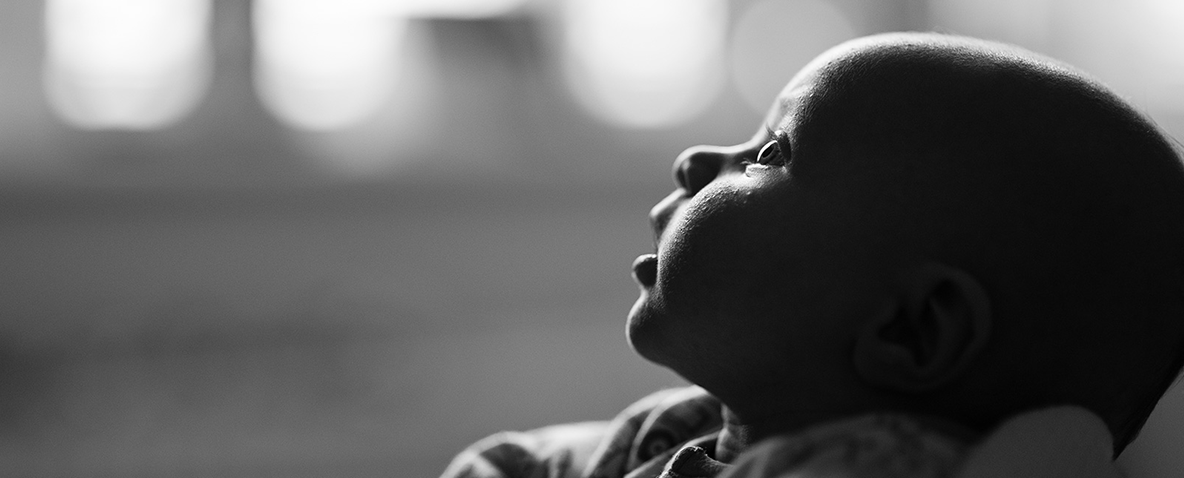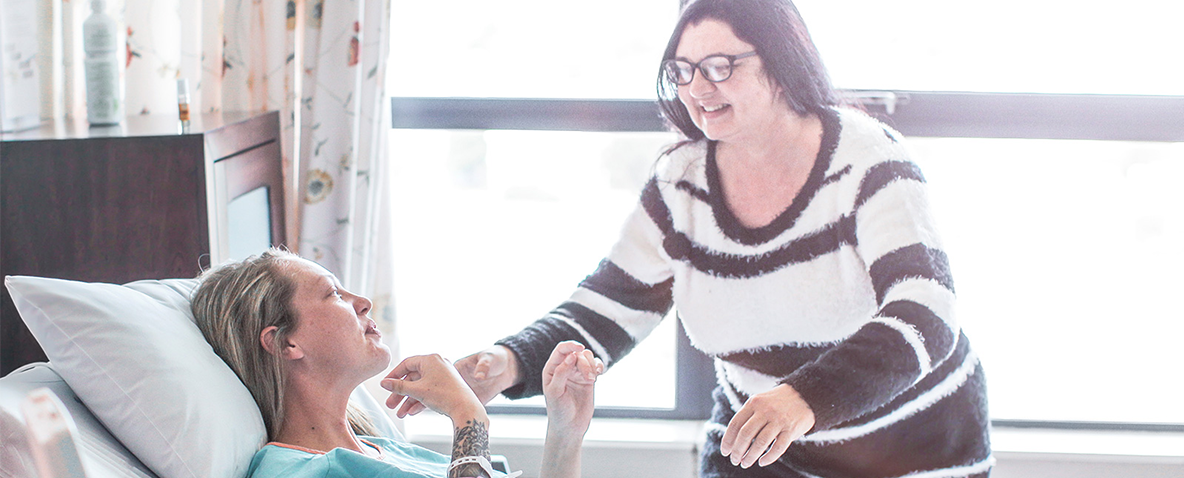Birth Day
It’s time to meet your new baby!

Birth Day
This Journey Point will help you prepare for delivery and the first few weeks of your new baby’s life.
Read along or listen to this section using the audio player.
This is the moment you’ve been waiting for! It’s almost time to meet your baby and introduce them to the world. This Journey Point can help you with planning by offering information, support, and ideas for resources that you might find helpful.
As always, start by taking a deep breath. Childbirth is an important milestone. Many women feel scared and unsure, as well as happy and excited. Some women who have had pregnancies or children before can also feel hopes or fears that this delivery will be like the others. The unknown is scary for everyone, but it’s important to remember that not knowing is different than knowing it will be bad.
This is a new experience: the first time you and this baby will have a chance to meet. You can trust in the process; babies are born every day. And you only have to take this one minute at a time. In fact, once labor starts, one minute at a time will be about all you can do.
Being well prepared can help you feel more relaxed when the time comes to have your baby. So, let’s get started.

Preparing for Birth
Use the People to Meet with During Pregnancy checklist to make sure that you’re ready for delivery day.
Ask your treatment provider or another team member to go through the checklist with you.
Read along or listen to this section using the audio player.
Labor and giving birth will require all of your strength and attention. Getting things in place before your delivery will help you to be fully present in the childbirth experience when the time comes.
This checklist will help you with planning. It introduces the people who will make up your birth team, including the doctors or midwives who will help you through delivery, the baby’s doctor, the breastfeeding support person, and social worker or care coordinator at the hospital.
This checklist is also a helpful to-do list for things you should make sure are in place before your due date. Things like child care, if you have other children at home, transportation to the hospital, and a prepared birth coach, a family member or close friend who will hold your hand and help you through the birth process.
You can go through this checklist on your own or take it to your next prenatal visit or pregnancy class, and ask a support person to go through it with you.

Create a Birth Packet
Start a folder of important documents as a record of how you’ve prepared for motherhood. We made a list of things for you to include in your folder, and you can download this Birth Planning Checklist using the link below.
Your treatment provider or the hospital social worker can help you get these documents together.
Take two copies of this folder to the hospital on delivery day. Make sure you give a copy of this packet to the hospital social worker, and explain that you want this packet to be seen by anybody making decisions about custody of your baby.
Read along or listen to this section using the audio player.
Starting a folder with important documents in it can help you feel prepared for any conversations about custody that might come up after you give birth. Use the Birth Planning Checklist of things to include in the folder. Make sure you have at least two copies so that the hospital social worker can share it with anyone making custody decisions after you deliver.
Many pregnant women who have a substance use disorder are afraid or angry when they think about anyone deciding who should have custody of their new baby. That makes sense. But, really, everyone involved just wants to make sure your home is a safe and healthy place for your new baby. Being well prepared can help you feel less afraid and more confident that you can provide a stable and safe home for your new baby. This checklist is a record of all your hard work and your plan to be a mother in recovery.
If just the thought of pulling this information together makes you feel anxious or if you feel yourself shutting down, that’s okay, too. Just print it out and hand it to one of your treatment providers. They can help you get it all together.
Remind yourself that you’re not alone in this journey. Focusing on your recovery—one minute at a time—is all you have to do right now.

Welcome, Baby!
Read along or listen to this section using the audio player.
The first thing to keep in mind is that you, the mother, are the most important person in your baby’s life.
In this section we’re going to go through some helpful ideas and suggestions to make this time right after birth comfortable and empowering for you.

A Caring Partnership
Read along or listen to this section using the audio player.
No one cares for a baby totally by herself. You gathered a team of supports in Journey Stop 2. Now it’s time to call upon key members of this team to help with your baby’s early life. These people can help with childcare or other responsibilities you left at home. They can offer positive visits, or bring you food or other supplies while you stay in the hospital with your baby. This team should also include the providers who prescribe your medications or oversee your treatment, to make sure you’re still getting what you need in the hospital.
Make sure your team is on board with what you might need once your baby is born. Many women talk about the benefit of having conversations with people before delivery, explaining the chance that their baby might stay in the hospital for a week or more to recover from exposure to substances. Talk first with people you trust, people who understand your process of recovery.
They can help you talk to the other people in your life, like your family or your employer.

Your Baby’s Stay
If your baby is born early, with health needs, or with signs of substance withdrawal, they may need to stay a little longer in the hospital. Some babies stay in a special nursery, some stay in a neonatal intensive care unit (or NICU), and some stay in the same room as the mother.
Check out these guides: they have ways to stay with and care for your baby.
Read along or listen to this section using the audio player.
The NICU, or neonatal intensive care unit, is a special nursery that takes care of babies born early or with health needs, such as signs of substance withdrawal. Not all hospitals use NICUs for babies born with substance exposure, some have special care nurseries, and others take care of the baby right in your room with you. Remember, not all babies who were exposed to substances in the womb end up showing signs of withdrawal, but some do. We’ll go through some things to keep in mind in case your baby has to stay in a NICU or a special care nursery, so that you feel prepared, just in case.
The NICU or nursery are busy and complicated places, so it’s a good idea to take a tour and talk with the nurses there before you have your baby. This way you’ll feel more comfortable later, when you’re doing the very important work of visiting with and caring for your new baby.
We have created a guide for how you should take care of a new baby that was born with substances in their system. It is so important for you to stay with your baby while they are in the hospital. There is a certain kind of care that only the mother can give, and you should be there with your baby as much as you possibly can, to give it. Print out this guide and bring it with you to the hospital. It will help you understand the space, the symptoms, and why it’s so important for you to stick and stay, even when it feels uncomfortable.

A Working Partnership
The doctors, nurses, midwives, and other staff at the hospital are there to HELP. Their job is to make sure your baby is safe, healthy, and comfortable. That’s your job, too!
Note: Some women face real barriers to staying in the hospital with their new baby. Transportation needs, duties at home, and program requirements are some examples of these challenges. Hospital social workers can help you find solutions.
Read along or listen to this section using the audio player.
Remember that you are the expert. You are the authority and in control of your care and the care of your baby.
YOU are the MOM.
You’re the most important person in this baby’s world. Everyone involved in your baby’s care: the doctors, the nurses, your team members, they are all working with you and your baby toward the same goal. But you are the leader of this team. It’s okay if you can’t be there because it’s not safe or possible. But if you can, try and be present with your child as much as you’re able.
You are getting to know your baby, and how to take good care of them. The doctors and other hospital staff are trying to take care of your baby as well. Your baby is getting to know you and this world. Asking questions, learning about breastfeeding, safe sleep, and soothing will help you feel more and more confident as the head of this team. Working with the nurses and doctors is the best way to begin to feel trusted, respected, and listened to, and it could even shorten your baby’s stay at the hospital, if that is where they are.

Your Baby Needs YOU!
Remember:
- Be gentle with yourself
- Take lots of breaks
- Stay connected
- Take naps
- Stay hydrated
- Take one day at a time
- Find a cheerleader
Read along or listen to this section using the audio player.
Be gentle with yourself. New mothers face so much change. Your life is changing, your body is changing, your emotions are all over the place, and who knows how long it’s been since you’ve gotten a good night’s sleep!
Stay in close touch with your support team, and whenever you can, take naps! Drink lots of water, especially if you’re breastfeeding, and try to focus on just the one day ahead of you. It’s a really good idea to have a strong cheerleader with you during this time. We are all, all of us moms who have been right where you are now, we are all cheering you on. Hang in there! You’re doing great.
I am powerful
You’ve finished this milestone.
These are the resources mentioned in this module: